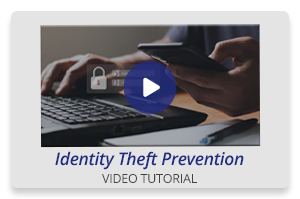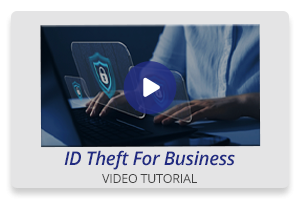Identity Theft
Preventing Identity Theft

|

|
Identity theft is a serious threat to everyone. It occurs when someone uses your personally identifying information, without your permission, to commit fraud or other crimes. Helping educate customers on ways to protect their personal information is a priority at FirsTier Bank.
Unfortunately, there is nothing you can do to guarantee you won't be a victim. There are, however, some simple steps you can take to minimize your risk of identity theft. They include:
- Always question the identity of people and companies that initiate contact with you. ID cards, letterheads and business cards can easily be falsified.
- Do not carry your extra credit cards or other important identity documents in your purse or wallet except when necessary.
- Minimize the amount of credit cards you own; cancel unused credit accounts, and shred the cards.Never leave your purse or wallet unattended.
- Do not throw away card transaction receipts at points of purchase or in public.
- Safeguard all bank and credit card statements and all utility bills. Do not simply throw these in the bin or recycling bin. Shred statements and bills when you no longer require them.
- Never simply throw away pre-approved credit offers - always shred them.
- Reconcile all bank and credit card accounts as soon as you receive them. Challenge any unauthorized transactions immediately.
- Notify the bank immediately if you do not receive your statement.
- Do not print your Social Security Number on your checks.
- Be aware of shoulder surfers when you are using your credit card or ATM card. Always ensure you keep your PIN safely hidden from others.
- When making Internet transactions verify that you are using a secure connection (https://).
- Remove your name from the marketing lists of the three credit reporting bureaus to reduce the number of pre-approved credit offers you receive.
The impact of identity theft can be enormous. While some victims can resolve their problems quickly, others spend hundreds of dollars and many days repairing damage to their good name and credit record. Some consumers victimized by identity theft may lose out on job opportunities, or be denied loans for education, housing or cars because of negative information on their credit reports. It is important to always be mindful of your personal information and monitor your finances for potential fraud.
Internet and email security
Phishing and Pharming
FirsTier Bank values your business and takes the security of your personal information very seriously. In order to better protect yourself, we are informing you about two types of email scams commonly known as "Phishing" and "Pharming".
"Phishing" refers to a scheme created by a cyber-criminal, or a group of cyber-criminals, who create an imitation of an existing legitimate web page to trick users into providing sensitive personal information. In a typical case, you'll receive an email that appears to come from a reputable company that you recognize and do business with such as your financial institution. The email will encourage you to click a link in the email which will direct you to the imitation web site where they will request and capture your personal information.
"Pharming" scams are very similar to "Phishing" scams, only instead of directing a user to a fraudulent website, the email will often contain a malicious software attachment that attempts to install itself on your PC and collect personal information for transmission back to the cyber-criminal.
Clicking on links or attachments in these "phishing" and "pharming" emails places your accounts at risk. Recently, the Federal Trade Commission has warned consumers about fraudulent emails, pop-up advertisements, and phony web sites that attempt to trick people into providing confidential personal information.
Email SPAM Scams
While some consumers find unsolicited commercial email — also known as "SPAM" — informative, others find it annoying and time consuming. Still others find it expensive: They're among the people who have lost money to spam that contained bogus offers and fraudulent promotions.
Many Internet Service Providers and manufacturers offer filtering software to limit the spam in their users' email inboxes. In addition, some old-fashioned 'filter tips' can help you save time and money by avoiding frauds pitched in email.
Spyware
Spyware is software designed to track or control your behavior online and hijack personal information. Without your consent, spyware will typically install in the background and give no indication that it is present on the system. Although spyware can come from visiting malicious Websites or clicking pop-up ads, it is often found in conjunction with SPAM email messages. Clues that spyware is on your computer include a flood of pop-up ads, a browser that repeatedly takes you to sites you don't want, unexpected toolbars or icons on your computer screen, random error messages, and poor overall computer performance.


